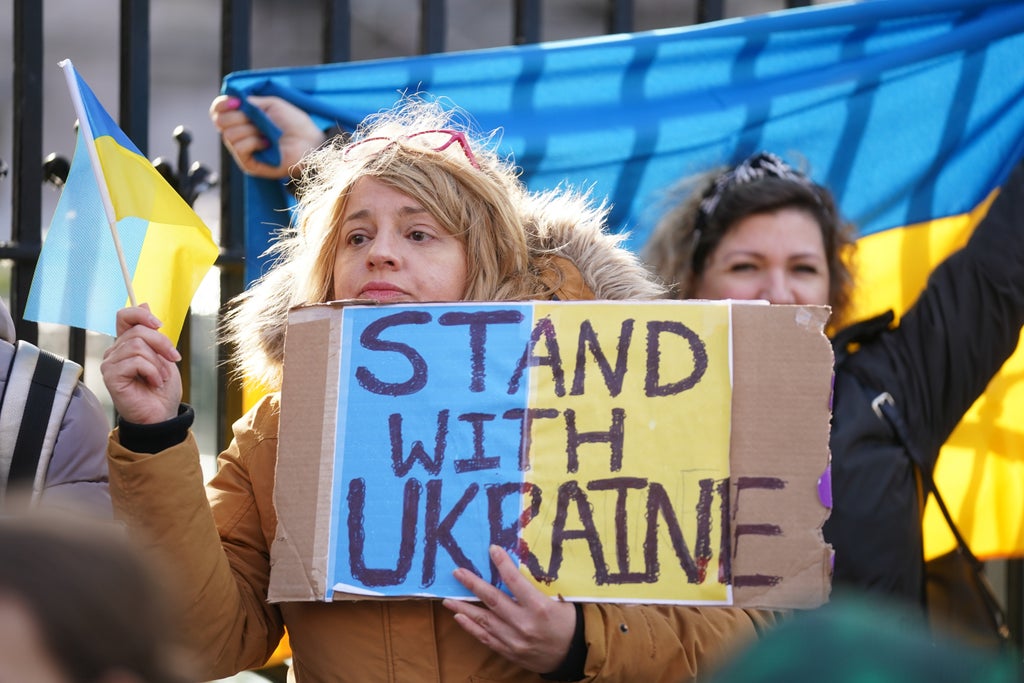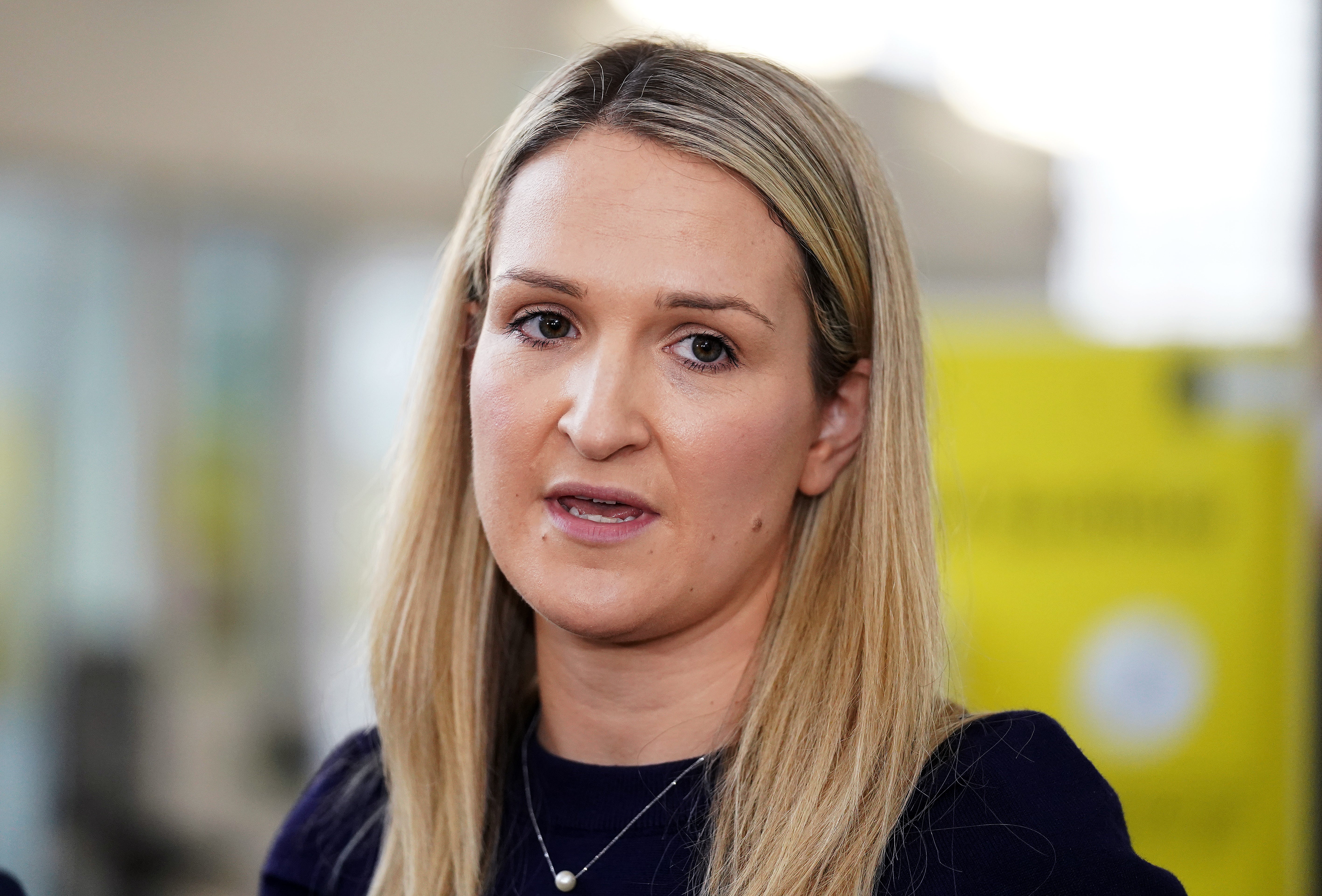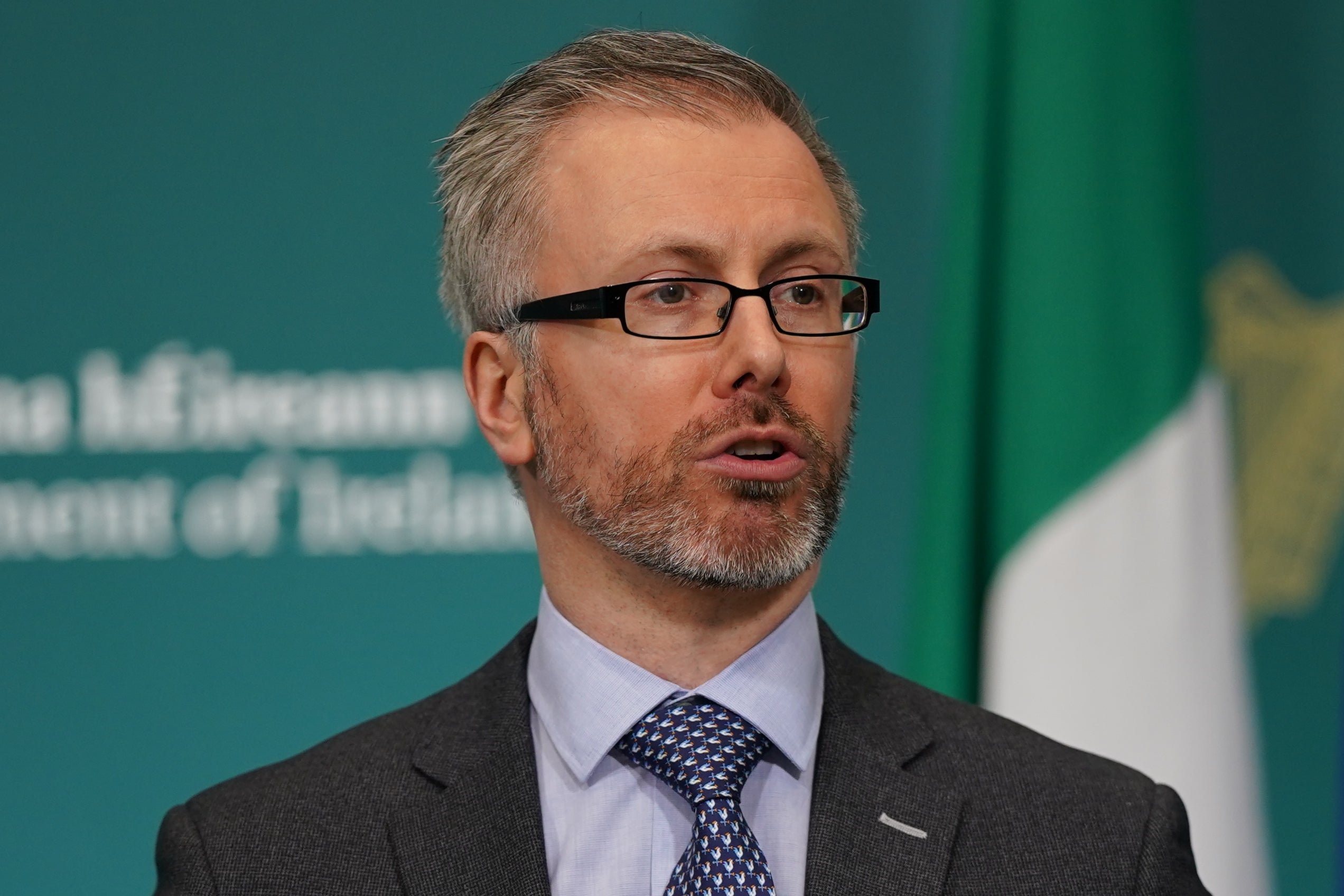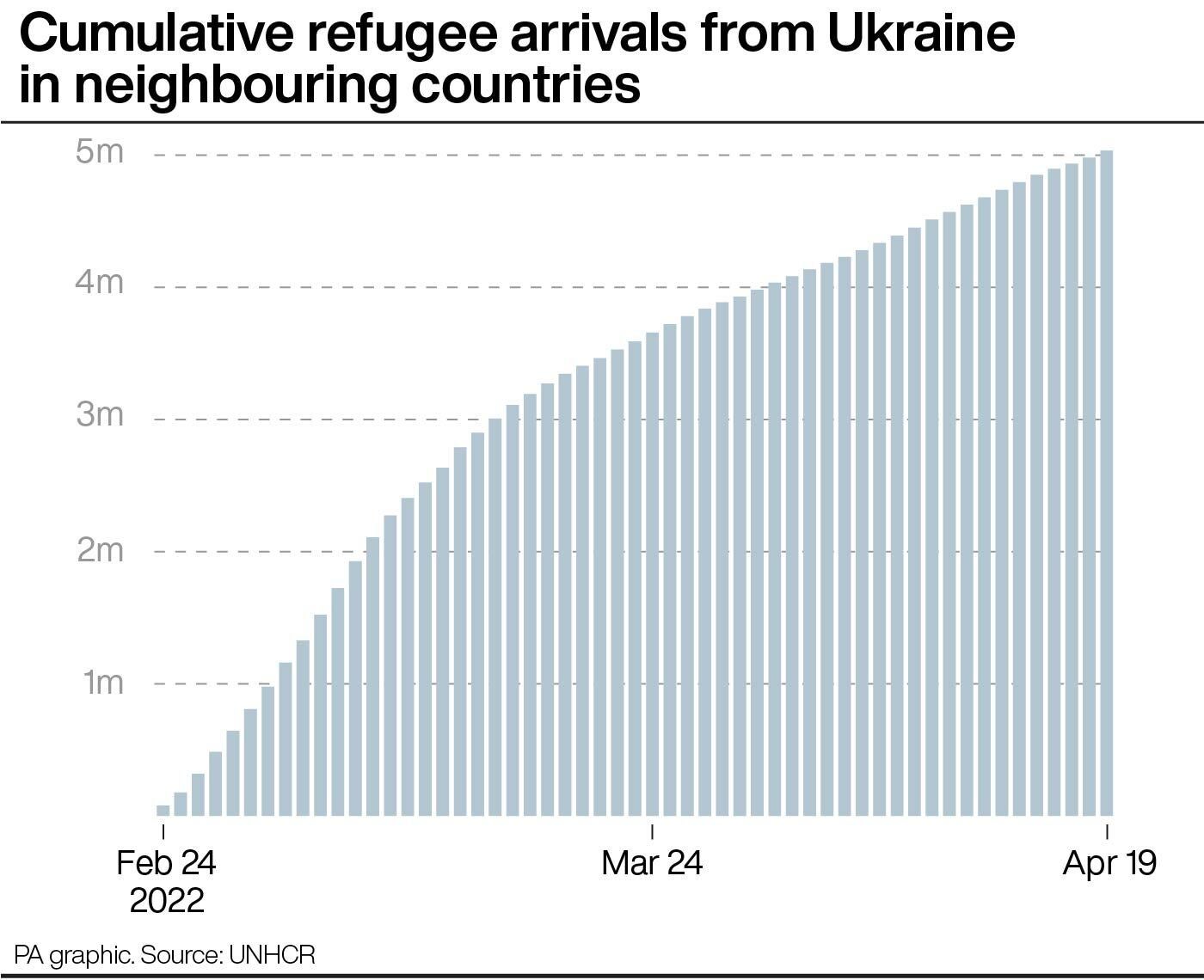
Ireland will not cap the number of refugees it accepts even as the Government admits it is facing a struggle to house arriving Ukrainians, the Irish Justice Minister said.
Around 25,000 Ukrainian refugees have arrived in the Republic of Ireland since the war began at the end of February.
While numbers arriving have fallen in recent days, the Government expects it to rise again in the coming weeks.
Helen McEntee, speaking in Government Buildings on Thursday, insisted that Ukrainian refugees will continue to be welcomed.
She indicated the Government will avoid, if possible, forcing people or businesses to give up property or open their homes to Ukrainian refugees.
The Millstreet Arena in Co Cork is being used to house at least 70 refugees, with the expectation that mass or emergency forms of accommodation will play a more central role in Irish efforts to welcome Ukrainians.
“Obviously we want to make sure that we don’t find ourselves in a situation where we don’t have space and accommodation, because we’ve been very clear we’re not going to turn people away. We’re not going to put a cap on the number of people,” Ms McEntee said.
She said “every option” is being explored.

“We want to encourage people to come forwards, not to force anybody to have to give up their property or accommodation.”
Ms McEntee said she would back plans to financially help households taking in Ukrainian refugees.
“There are people who are looking for it, there are others who aren’t, but I think obviously if we get to a situation where we want to encourage more people to offer up accommodation, that might be an option.
“We’re very aware that there’s an increase in costs in electricity and fuel, even in food prices.
“So I think what we’d have to establish is how we would cover those costs.
“I don’t think anybody’s looking to make money out of this.”
Roderic O’Gorman, whose department is leading efforts to house refugees fleeing the war-torn country, earlier admitted that mass accommodation would increasingly be used in response to the crisis.

Mr O’Gorman said such accommodation is “not the preference” but he expects refugees to be there for a “number of weeks”.
He added: “It’s not the gold standard, it’s not what we would like to see everybody living in, but we are in a crisis situation. We’re in a European-wide war, and we are doing our very best to provide shelter and provide safety to Ukrainians.”
He indicated the limit had been reached on the use of hotel accommodation as the busy summer tourist season approaches.
The Department of Integration, he said, is trying to find other accommodation.
He told RTE radio the Government is speaking to universities and colleges.
“Accommodation like Millstreet, that kind of grouped accommodation, is going to become a larger feature of how we provide for people,” the minister said.

“We have to be upfront about that. It’s what’s been used in many European countries from very early on in this crisis.”
Mr O’Gorman said he is aware of calls from various organisations for a national director to co-ordinate the country’s response to the Ukrainian refugee crisis.
However, he did not say whether such a proposal is being considered.
Ms McEntee played down any suggestion a national director or even a specific minister could be appointed to co-ordinate the response.
Also speaking on RTE radio, the Ukrainian ambassador to Ireland admitted she has concerns about the use of emergency accommodation.
Larysa Gerasko said: “It’s not the best accommodation, even temporarily, but I fully understand that Ireland is facing a challenge, a housing challenge.
“Also, Ireland is a small country.”







